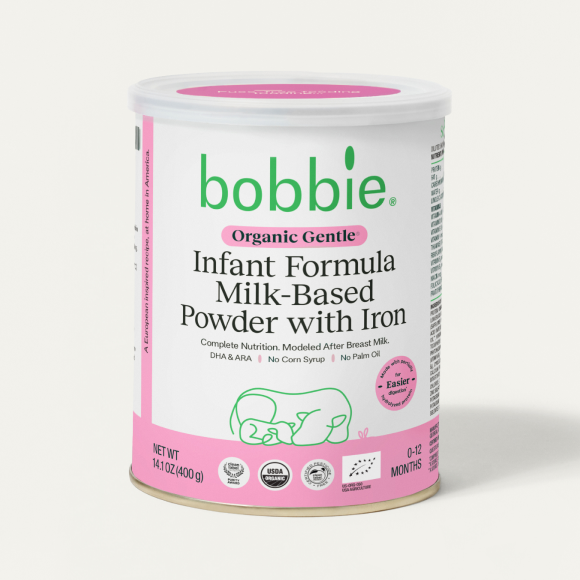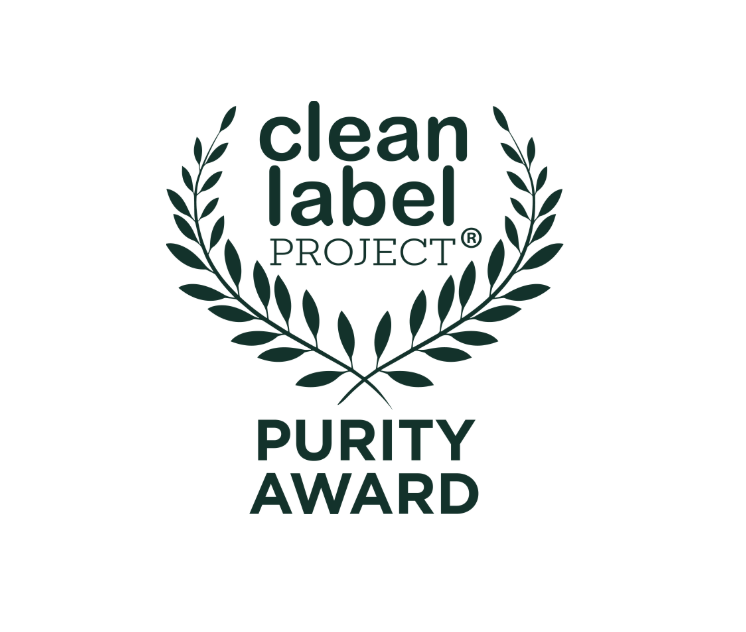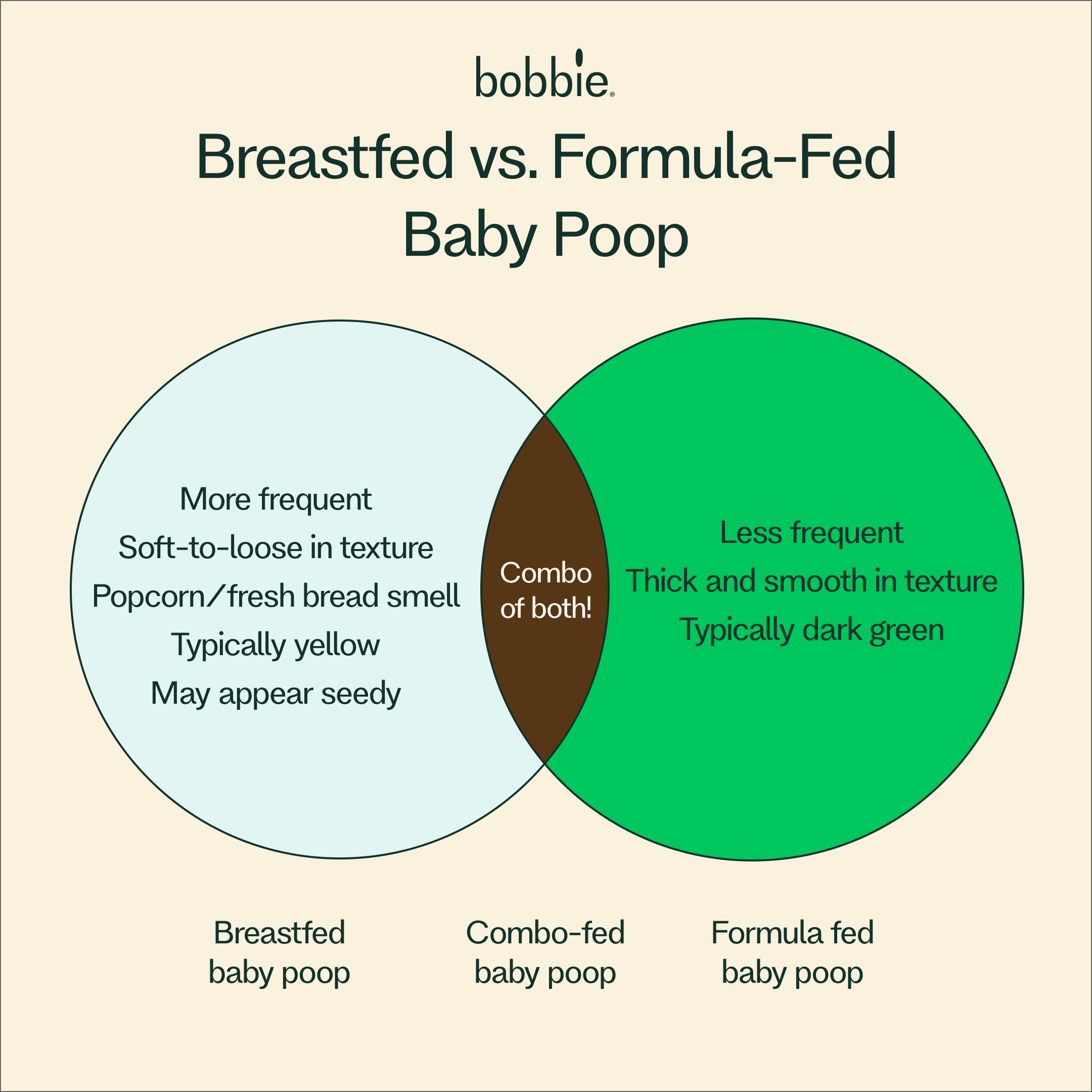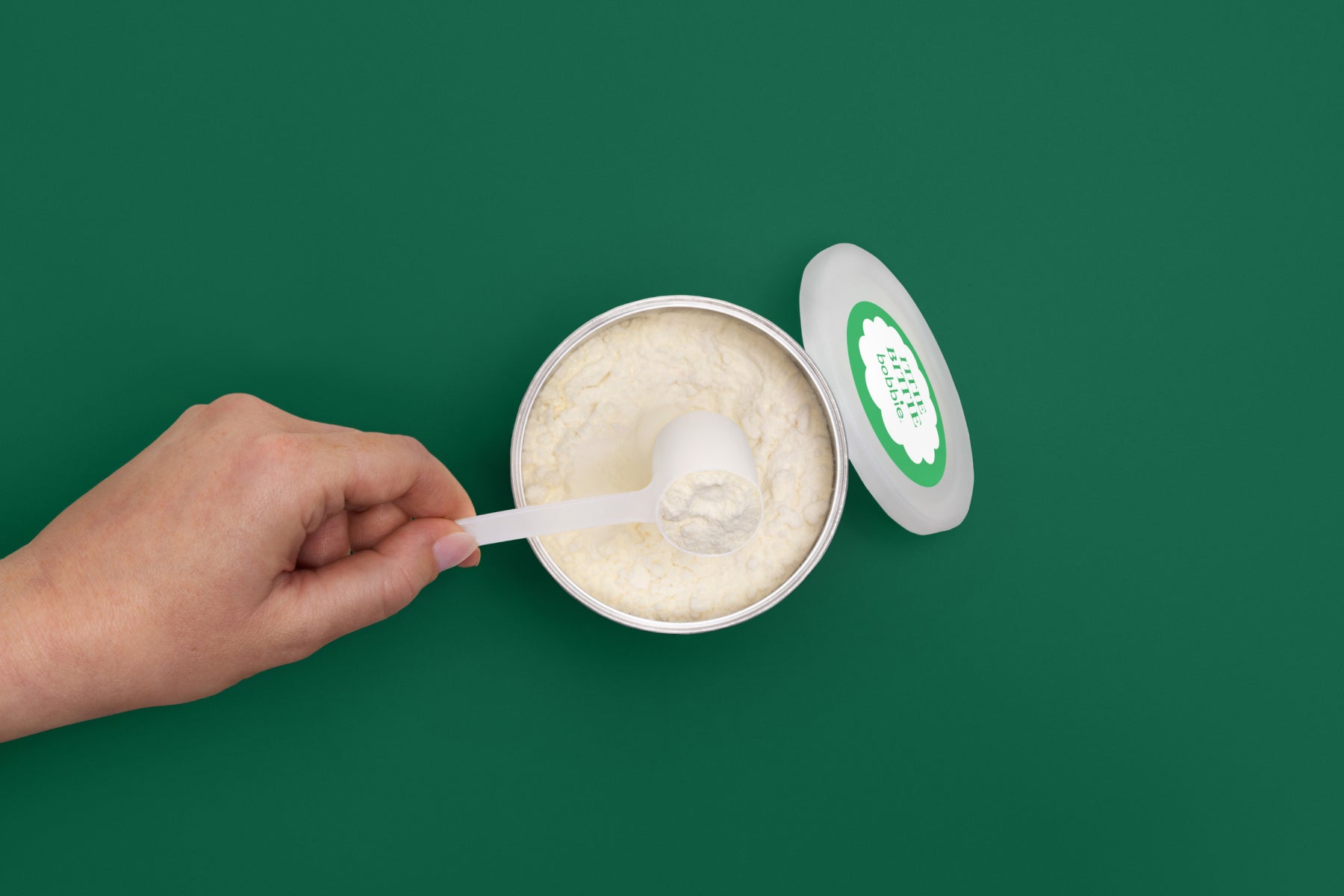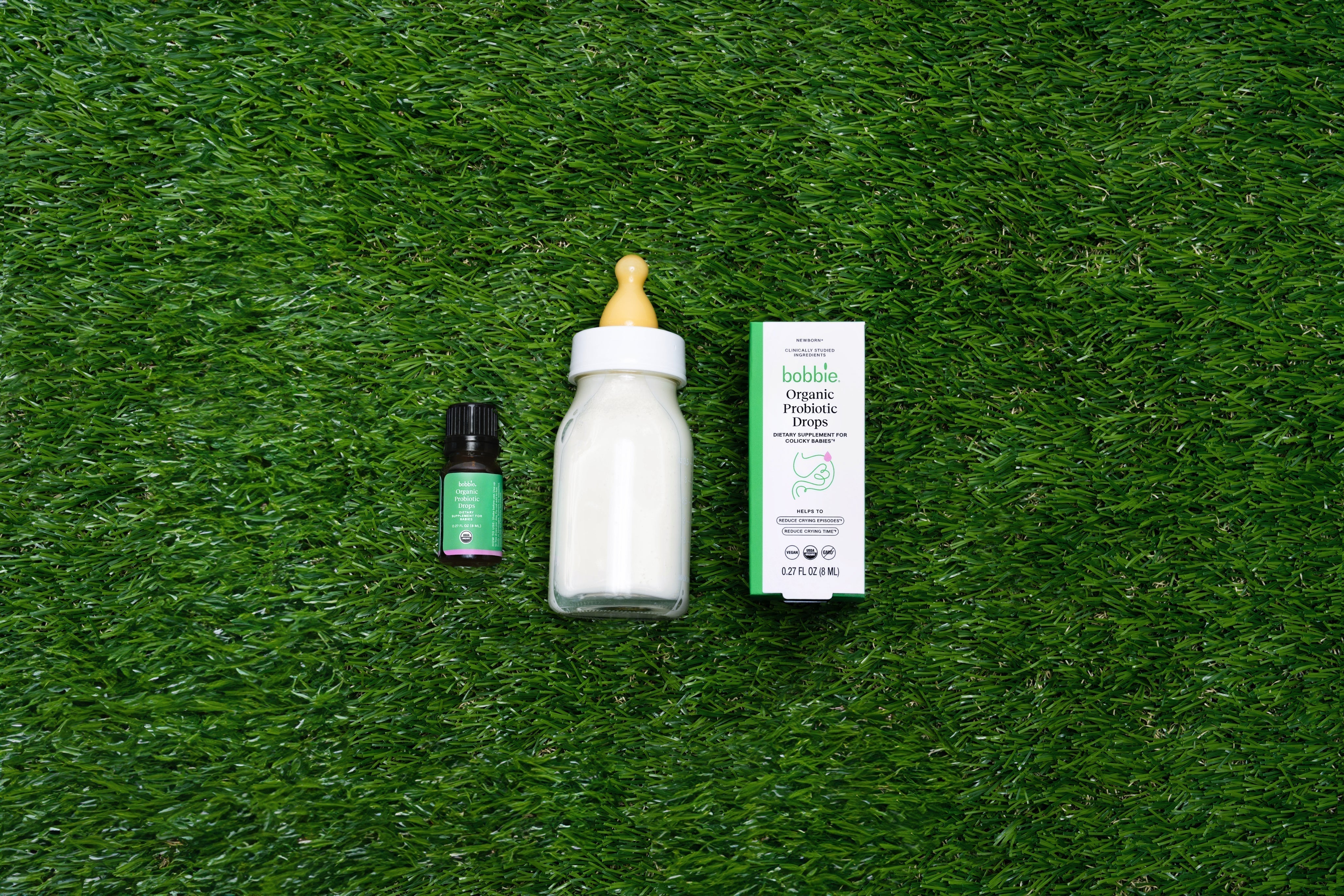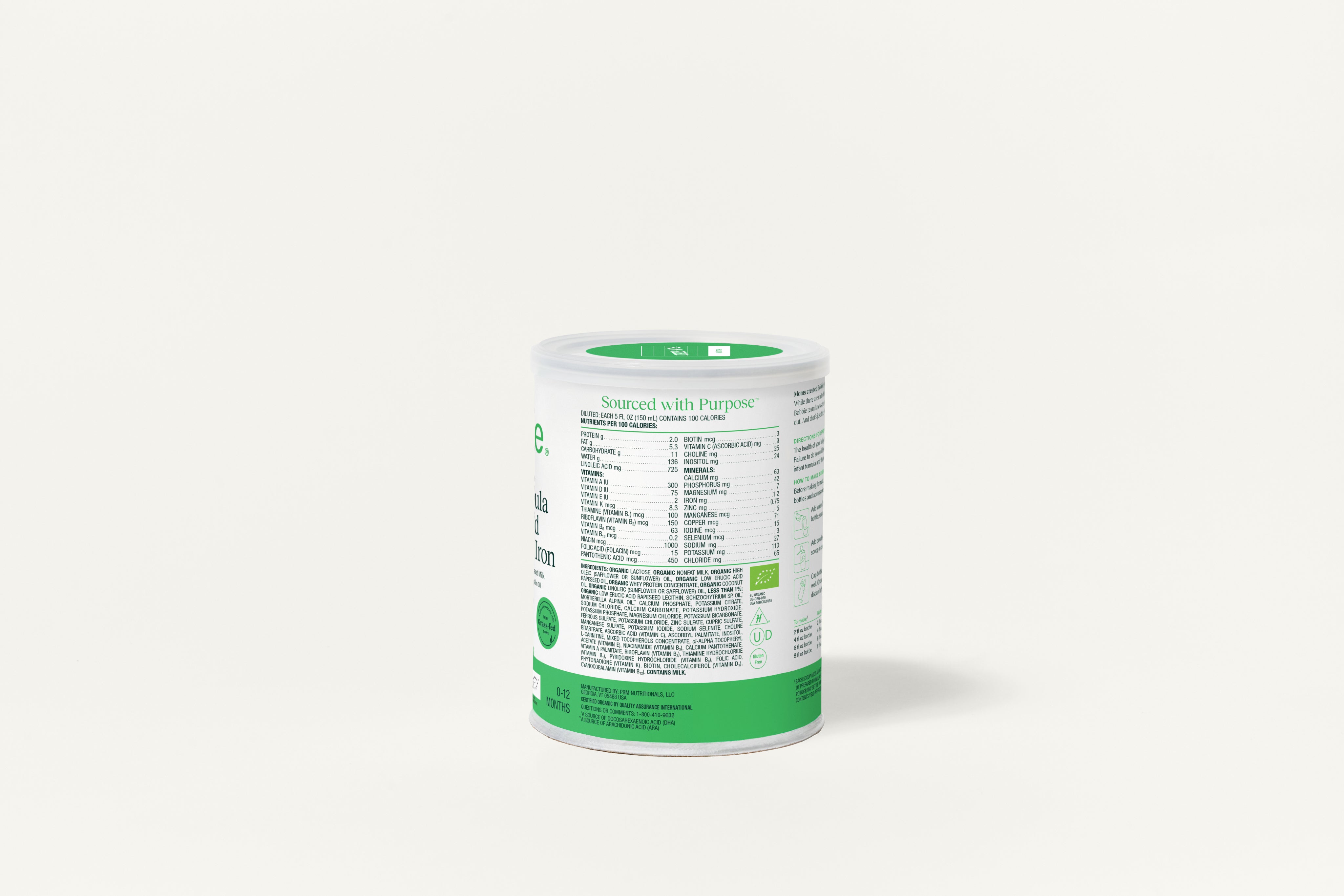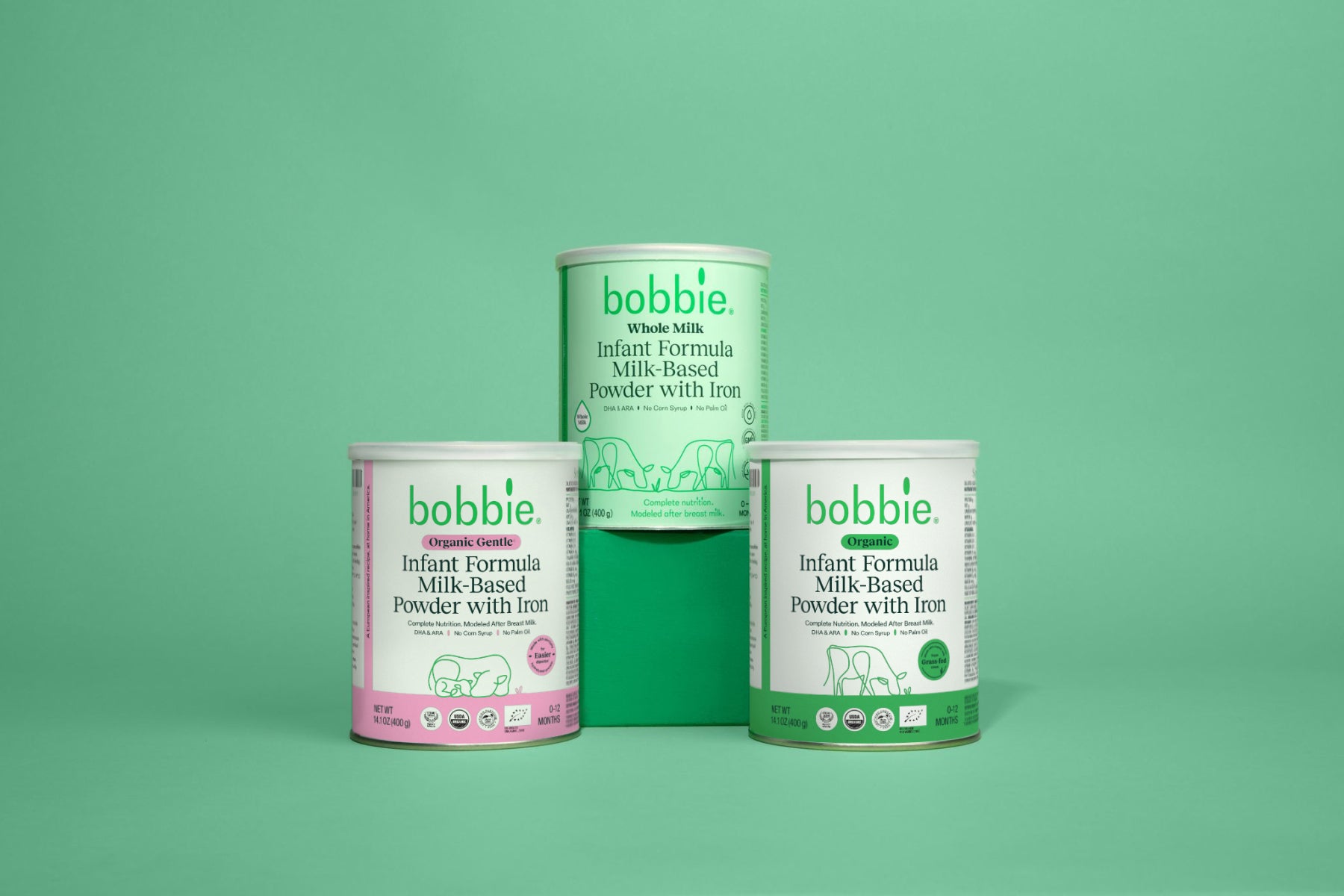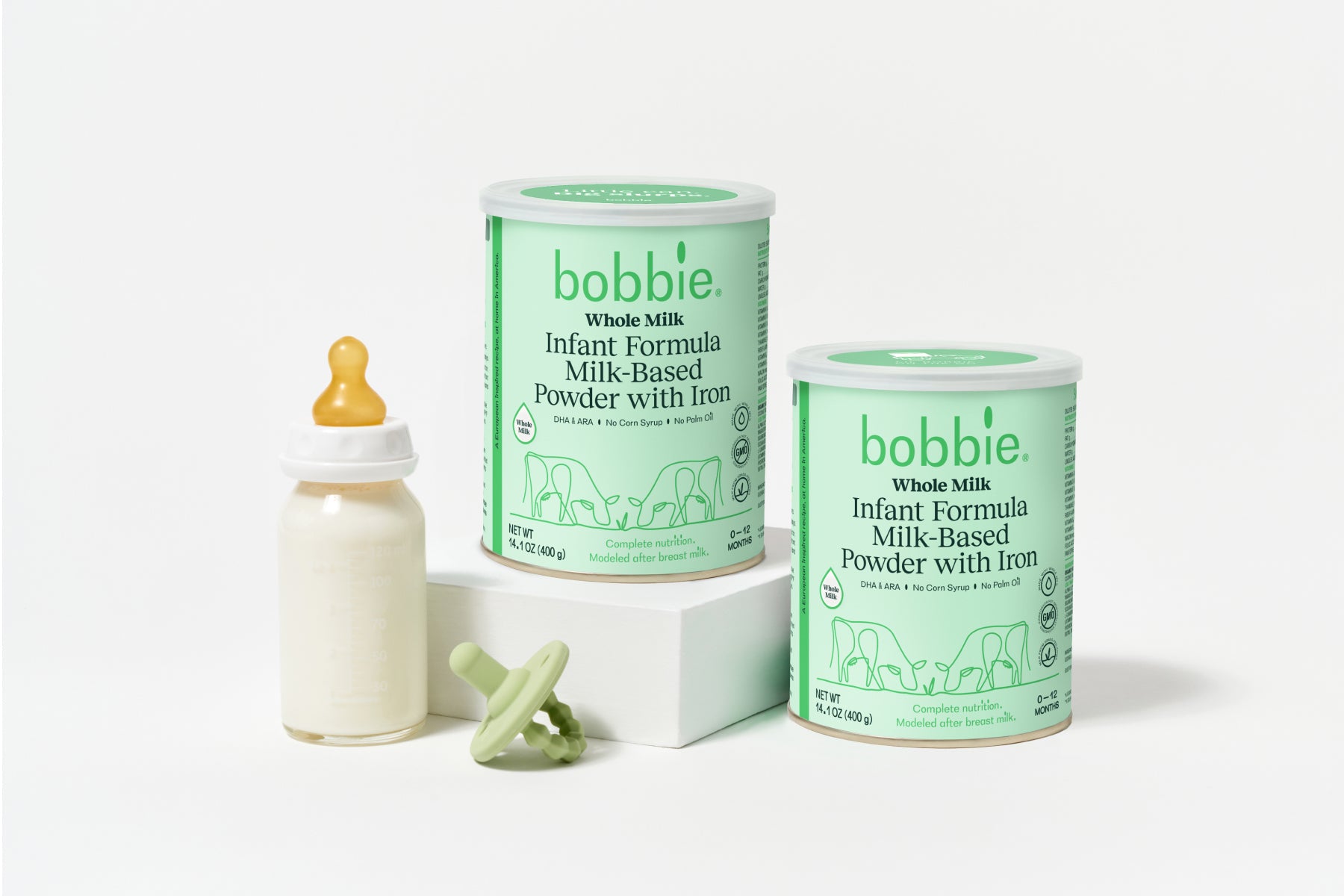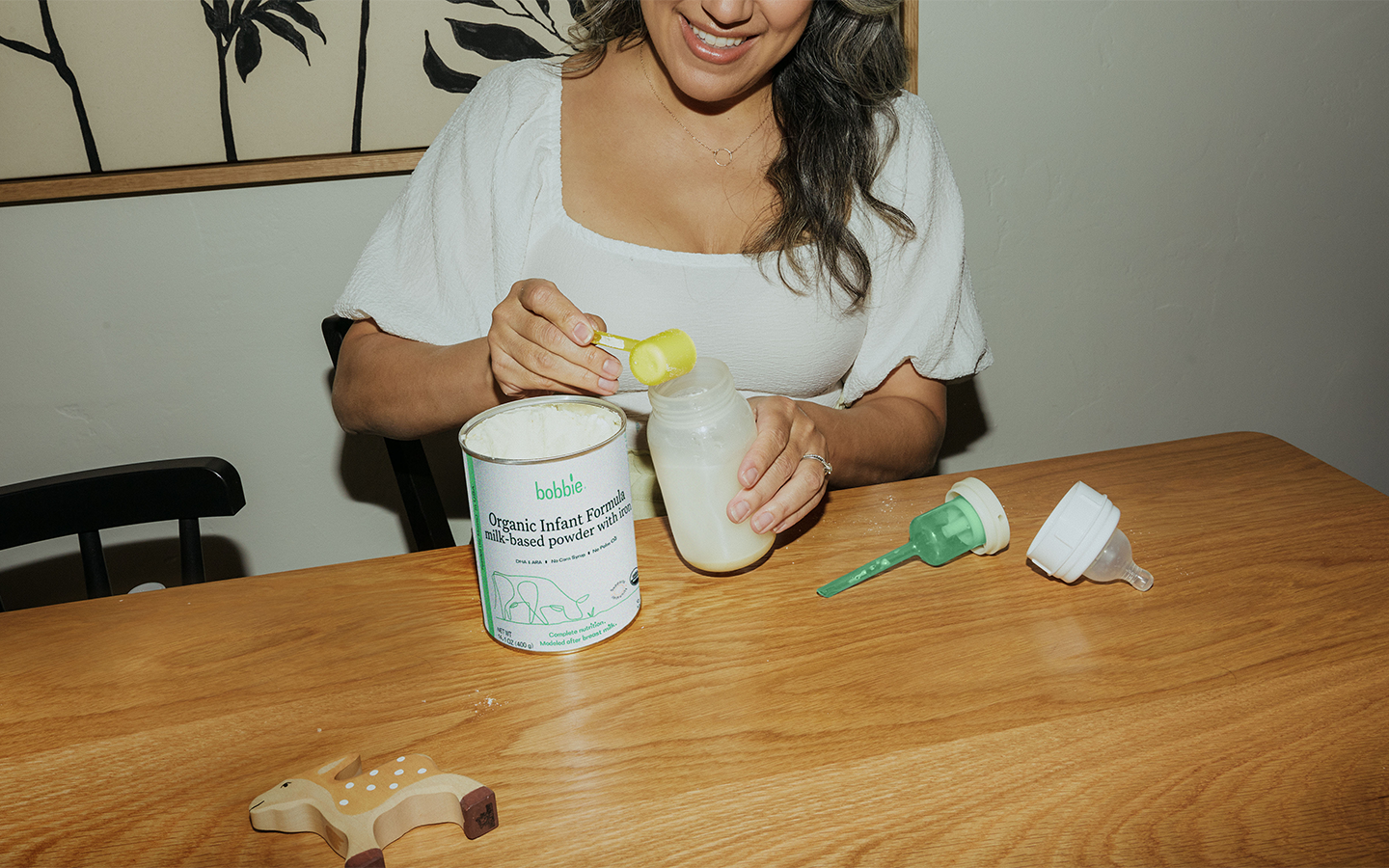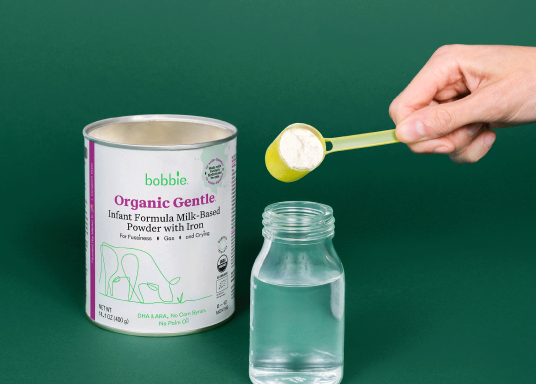Published July 3, 2024
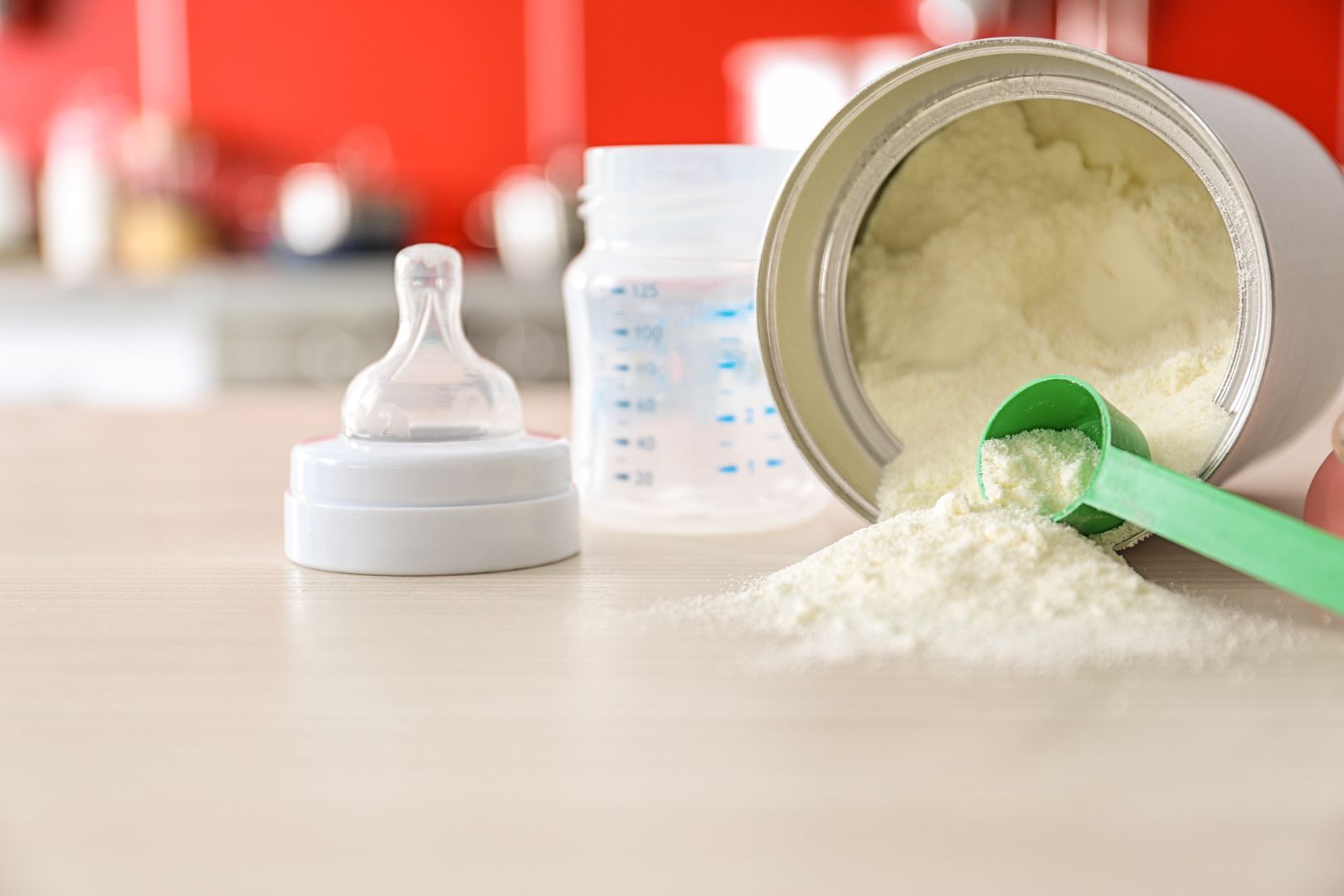
Soybean Oil vs. Canola Oil in Infant Formula: What Parents Need to Know
Choosing the right infant formula for your baby is crucial, and understanding the ingredients can help you make the best decision. The ingredients in infant formula are critical for ensuring the health and development of babies. Among the key components, plant-based oils provide essential fatty acids and calories crucial for growth and brain development. Two commonly used oils in infant formulas are soybean oil and low erucic acid rapeseed oil, also known as canola oil. Let’s break down the differences between these oils and understand why they’re important for baby formula.
What’s in the Oils: Soybean Oil vs. Canola Oil
Both oils contain essential fatty acids and naturally-occurring vitamin E. They are used in combination with other oils, and sometimes milk fat, to ensure a well-rounded nutritional profile similar to the composition of breast milk. These formulations are carefully designed to support the health and development of infants.
Soybean Oil: Soybean oil is made from soybeans and naturally includes omega-6 fatty acids, which are essential for your baby’s growth and development and omega-3 fatty acids.
-
Omega-6 Fatty Acids: These, like linoleic acid, are crucial for your baby’s growth. Baby formula includes omega-6 fatty acids because they are essential for human health and are found in breast milk!
-
Vitamin E: This vitamin helps protect your baby’s cells from free radicals.
Canola Oil: Canola oil comes from the seeds of the canola plant. It’s known for having a good balance of omega-6 and omega-3 fatty acids, which is important for your baby’s overall health.
- Omega-3 and Omega-6 Fatty Acids: Like soybean oil, canola oil has omega-6 fatty acids. It also offers some omega-3 fatty acids too.
- More Monounsaturated Fat than Saturated Fat: Similar to soybean oil, canola oil contains more monounsaturated fatty acids than saturated fatty acids.
- Low Erucic Acid: Erucic acid is a fatty acid that may present health risks. With natural cross breeding techniques, canola oil has been cultivated to offer low erucic acid. You’ll see this on a label as “low erucic acid rapeseed oil.”
Bobbie Organic Infant Formula is a USDA Organic, EU-style infant formula that meets all FDA requirements. It is a complete nutrition milk-based powder modeled after breast milk and is easy on tummies. It is non-GMO and doesn't have corn syrup, palm oil, or maltodextrin. Shop Bobbie today!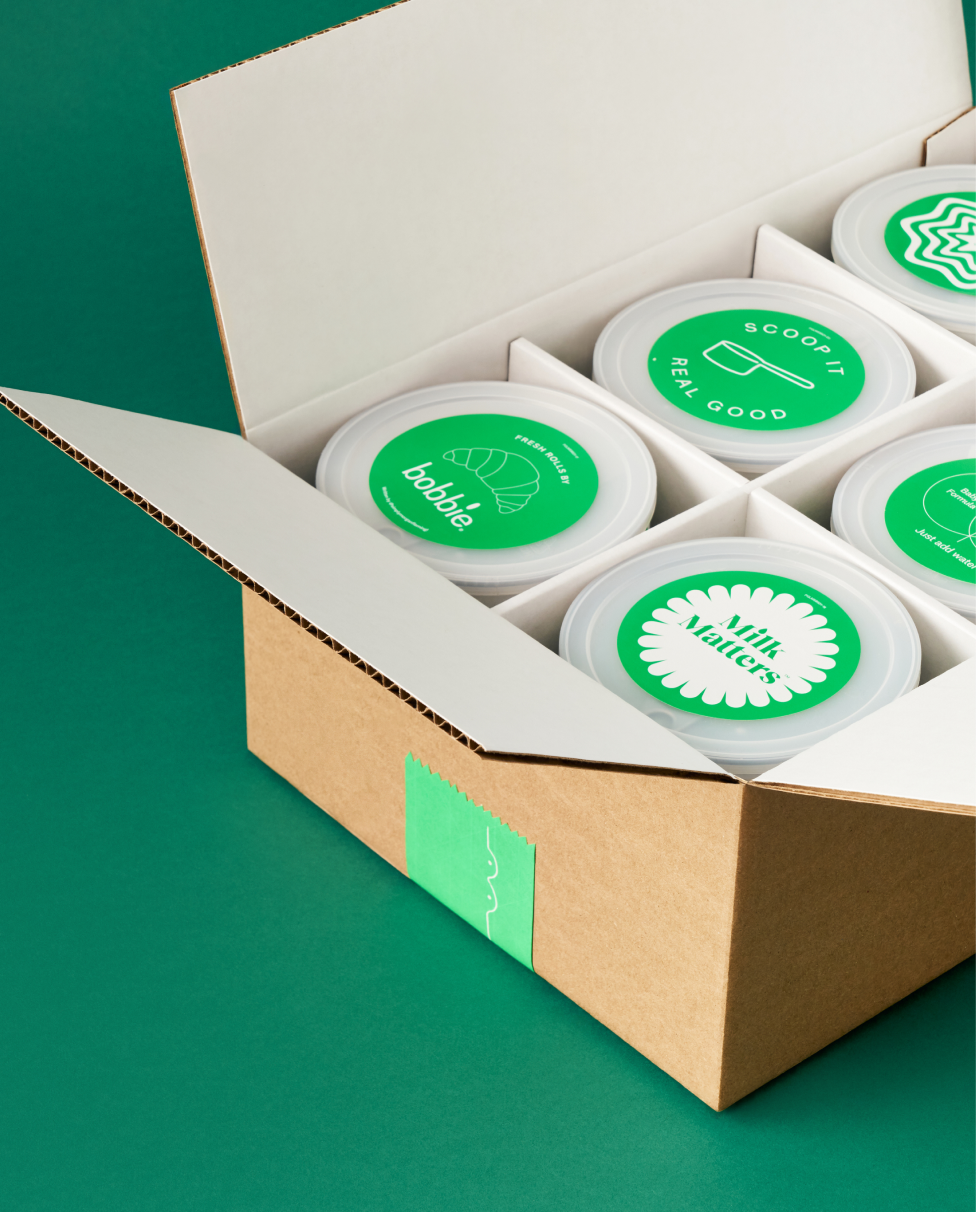
Shop Bobbie Organic Infant Formula

Benefits and Concerns
Soybean Oil:
- Benefits: Has omega-6 fatty acids, which are essential for growth, and naturally-occurring amounts of vitamin E.
- Concerns: The omega-6 content in soybean oil can be problematic if not balanced with enough omega-3s to meet an infant’s nutritional requirements. But fear not! All formulas include a blend of several plant-based oils to provide the necessary fatty acids!
Canola Oil:
- Benefits: Includes both omega-6 and omega-3 fatty acids.
- Concerns: Many canola crops are genetically engineered (GMO). If this concerns you, look for non-GMO or organic canola oil options.
Why Omega-6 Fatty Acids Matter
Omega-6 fatty acids are important for your baby’s brain development, growth, and maintaining healthy skin and hair. Soybean oil, canola oil, and breastmilk provide these essential fats, and balance with other fatty acids is key.
For Development:
- Alongside other fatty acids, omega-6 fatty acids help build your baby’s cells and support overall growth and development.
They’re Required:
- Linoleic acid, an omega-6 fatty acid, must be found in the right amounts in infant formula according to infant formula guidelines in the United States. Infant formulas include an oil blend of several plant-based oils in order to provide all types of fatty acids your baby needs.
Practical Tips for Choosing Infant Formula
When deciding between formulas with soybean oil or canola oil, consider these points:
- Digestibility: It is not expected that there would be differences in digestion between formulas with soybean oil or formulas with canola oil.
- Allergies: Soybean lecithin, an emulsifier often found in formulas that include soybean oil, might be an issue if your baby has a soy allergy. Always check the allergen statement on your label of infant formula and if your baby has a known allergy to soy or if you are concerned about a possible soy allergy, please consult your baby’s healthcare provider before use.
- Quality: Look for formulas that use non-GMO, organic, and/or expeller-pressed oils to avoid concerns about prohibited pesticides, genetic modifications, and chemical processing agents.


Your go-to resource for all things new baby.
Sign up to get the scoop on feeding, sleep, poop, and so much more.
By singing up for email, you are to receive marketing emails from Bobbie and can manage your email preferences or unsubscribe at anytime
Soybean Oil vs Canola Oil: Final Thoughts
When it comes to choosing between soybean oil and canola oil in infant formula, it’s important to know that a formula with either will provide the fats and nutrients your baby needs to thrive as part of a complete oil blend.
The best choice depends on your baby’s specific needs, any potential allergies, and the quality of the formula. Always consult with your pediatrician to ensure you’re making the best choice for your baby’s health and development. With the right information, you can confidently choose a formula that supports your baby’s growth and well-being from the start.
Bobbie Organic Infant Formula is a USDA Organic, EU-style infant formula that meets all FDA requirements. It is a complete nutrition milk-based powder modeled after breast milk and is easy on tummies. It is non-GMO and doesn't have corn syrup, palm oil, or maltodextrin. Shop Bobbie today!
Shop Bobbie Organic Infant Formula

The content on this site is for informational purposes only and not intended to be a substitute for professional medical advice, diagnosis or treatment. Discuss any health or feeding concerns with your infant’s pediatrician. Never disregard professional medical advice or delay it based on the content on this page.








